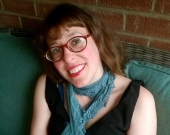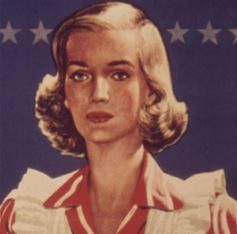First the fish started showing up dead at the edge of the water and then the Zimmermans’ dog got sick. But most people who lived on the Landing still went into the lake daily if before the algae arrived they’d gone into the lake daily. Younger children were amused by the green fuzz. They had manifested the sea monster of their dreams.
Matilda never should have gone in the water while she was pregnant. By text, Matilda’s best friend Rose offered to help bury the baby. Matilda wrote back that there was nothing to bury, only blood.
Do you think it had to do with the algae? Matilda asked at her next visit. Ordinarily her doctor might have taken a glance at the literature on cyanobacteria and pregnancy, if any existed. But that morning she had read about a new virus emerging across the world in Wuhan, China. Patients were presenting unusual symptoms. I’m not concerned about the etiology of your condition, she said to Matilda, closing the file. Matilda yanked her silver spandex back on and gave her credit card at the front desk for the copay. One last text to Rose that night about the vanished baby. I should never have gone in the lake.
At that point the foam covering Lake Sunapee had only recently bloomed, blue green, from a curiosity into a concern. Property values plummeted the following spring and the concern bloomed into a dilemma. But headlines in the Sunapee Citizen about the algae were soon eclipsed by news of a virus that had made its way across the sea. In quarantine, the algae became ornamental for the residents who lived facing the lake. Most others forgot about the aquatic curiosity. Not Matilda, who lived two houses back from the water. Not Rose, who lived two hours away.
More than a year later, when the people who lived on the Landing were allowed out of their houses, they accepted that the lake was off limits. They were free to walk anywhere on Earth; surely wanting the water too would be too much. The making of Greek myth.
Stay with me, Matilda texted Rose, when she read that her friend would be giving a lecture at a nearby college. Rose had made a discovery about phosphorus-carbon bond formation that might have implications for the phosphorus causing the algae on the lake.
You’re amazing. Matilda was sitting crisscross on the wicker couch. The two were drinking wheat beers on Matilda’s porch in early September. The sun was fleeing. Neither wanted to admit they needed a sweater.
Rose shrugged. I can’t knit. She took a gulp of beer. Or grow my own kale.
Matilda put her beer down on the wooden railing. It fuzzed up over the top. Do you want to try the kale? Her cheeks were flushed, eyes gleaming.
Rose skip-ran around the side of the house. Matilda would meet her in the garden with another two beers, cold from the freezer.
The garden grew only one thing. Dinosaur Kale read the label, in black marker on a popsicle stick. When Matilda didn’t appear, Rose wandered into the shed in the back. Tacked to the wall were hundreds of feathers. A wooden shelf, propped up across two metal bookcases, held at least a dozen candles. Rose picked up a magnifying glass and held it up to a blue-green feather. A macaw maybe? She expected to see an apparition of some kind, the prism shape of phosphorus, or the virus cell wearing crowns, or maybe even the baby who had lost its solid form before it even entered the world. But she saw only a feather up close, the gentle, arched vanes.
Later inside, the two massaged the kale Rose had picked with lemon and salt then tossed it with pasta and watched On Golden Pond. Why had they never noticed before how whiny and immature Jane Fonda was? Like, pull yourself together. Grow up.
What will you do about the phosphorus? Matilda asked Rose after flipping off the bedroom light and scooting up to the top bunk.
In Blodgett’s Landing on Lake Sunapee, they think phosphorus is the enemy. They don’t know it’s essential to life.
“Phosphorus” from the Greek, meaning “bearer of light.” There were days in the past when they would have willingly lost entire afternoons to the meaning of words.
The next morning Rose packed up and headed to the college where she was to stay in a dorm room set aside for faculty. There was a simple bed and a bureau, both made of pale wood.
Peonies were dying in a vase.
 Rachel Federman is a freelance writer who lives with her family in NYC. Rachel has worked in the nonprofit sector for over two decades primarily for organizations that advance minority education. Her band, Dimestore Scenario, used to play in clubs around NYC. Her stories have appeared or are forthcoming in Literary Mama, Palm-Sized Press, Hoot Review, Writers Resist, On the Run, and Willows Wept Review. Rachel holds a Master’s degree in English Literature from Fordham University. She can be found at rachelfederman.com.
Rachel Federman is a freelance writer who lives with her family in NYC. Rachel has worked in the nonprofit sector for over two decades primarily for organizations that advance minority education. Her band, Dimestore Scenario, used to play in clubs around NYC. Her stories have appeared or are forthcoming in Literary Mama, Palm-Sized Press, Hoot Review, Writers Resist, On the Run, and Willows Wept Review. Rachel holds a Master’s degree in English Literature from Fordham University. She can be found at rachelfederman.com.
